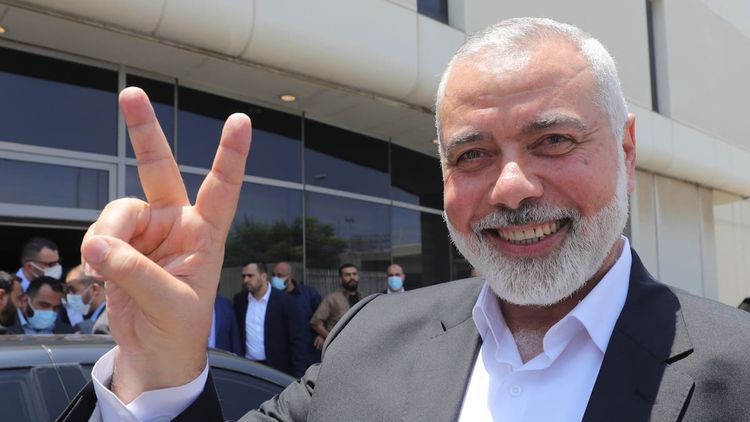Iran gives first detailed statement on Hamas leader Ismail Haniyeh's ...

Washington Post
By
Susannah George, Victoria Bisset, Bryan Pietsch
3 Aug, 2024 08:41 PM3 mins to read
Ismail Haniyeh was assassinated in Tehran. Photo / Getty Images
Iran on Saturday released several details from its investigation into the killing of Ismail Haniyeh, saying the Hamas leader was assassinated by a “short-range projectile” fired from outside the guesthouse where he was staying in Tehran.
The findings were included in a statement from Iran’s Islamic Revolutionary Guard Corps, the country’s most powerful military institution, and carried by state media. Haniyeh’s assassination early on Wednesday, while he visited Tehran for the new president’s inauguration, was a stinging embarrassment for Iran’s security and intelligence establishment.
The statement blamed Israel for the operation, which it said was carried out with “a short-range projectile with a warhead” that weighed about 6kg. It “caused a strong explosion,” the statement said, without giving more details. Israeli officials have declined to comment on the attack.
Haniyeh was Hamas’ top political leader and played a key role in negotiations to end the war in Gaza. He left the enclave in 2019 to work on building Hamas’ alliances abroad, and split his time between Qatar and Turkey, with occasional visits to Iran.
Iran’s statement on Saturday appeared to try to push back against reporting by the New York Times suggesting Haniyeh was killed by a bomb snuck into the building months before the assassination took place. An operation to plant an explosive in a guesthouse used by close Iranian allies would have had to penetrate many more layers of Iranian security than an attack launched from the outside.
Hamas officials have also said that Haniyeh was killed by a rocket or missile, but have emphasised that they want to wait until Iran has completed its investigation. The group’s representative in Tehran commented on the killing on Friday, saying in an interview with the London-based New Arab outlet that he was in the building at the time of the attack.
The guesthouse “was shaking so hard that he thought it was an earthquake or a thunder, but it was neither,” he said.
Tensions are high in the region amid concerns that Iran will strike Israel in the coming days in retaliation for the assassination. The United States has repositioned military assets in the region, including warships and fighter jets, to help defend Israel against such an attack. Some commercial airlines have cancelled flights this month due to the looming threat, which was reportedly ordered by Iranian supreme leader Ayatollah Ali Khamenei in the aftermath of the killing.
The situation is also tense across the border in Lebanon as skirmishes between Hezbollah, the Lebanese militant group and political party, and Israel threaten to turn into a full-scale war. With flights out of Lebanon also being cancelled, the United States Embassy in Beirut urged any Americans there who sought to leave to “book any ticket available to them, even if that flight does not depart immediately or does not follow their first-choice route.”
The British Embassy in Beirut urged Britons not to travel to Lebanon, writing on X on Saturday that for those who were already there: “You should leave while commercial flights remain available.”









































